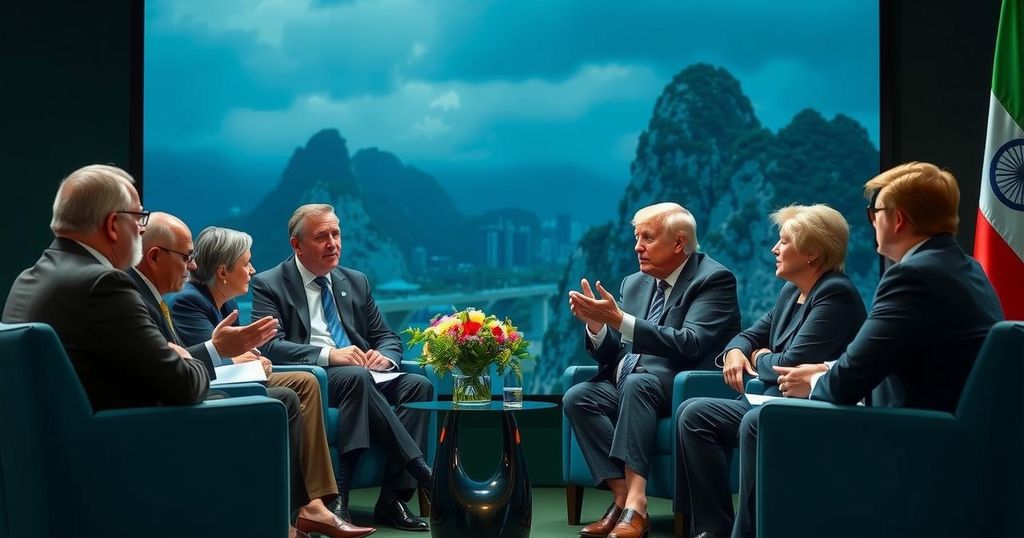G20 Leaders Prioritize Climate Change Amidst Critical Global Tensions
On the last day of the G20 summit, leaders prioritized climate change discussions, emphasizing the need for increased financial commitments to address global warming before a potential shift in U.S. climate policy. They called for rapid scaling of climate finance while grappling with disagreements over funding responsibilities among developed and developing nations. The G20 also reaffirmed commitments to limit plastic pollution through a binding treaty by 2024.
On the final day of the G20 summit in Rio de Janeiro, leaders focused their discussions on climate change amidst rising global temperatures. They expressed urgency in solidifying efforts to address this critical issue before the potential return of Donald Trump to the US presidency in January, who might reverse climate policy and exit the Paris Agreement. The summit emphasized the necessity of enhancing financial commitments to combat climate change, as signified by a joint statement calling for the increase of climate finance from billions to trillions of dollars to combat the climate crisis effectively. During the summit, G20 leaders recognized the need for a new financial goal for providing assistance from wealthier nations to developing countries in terms of climate finance. However, while the G20 statement highlighted the importance of resolving these issues, it refrained from specifying concrete solutions for the U.N. climate summit set to conclude later in the week. Economists project that this annual financial goal should exceed $1 trillion. Developed nations, particularly in Europe, have argued for expanding the contributor base to include richer developing countries, notably China and affluent Middle Eastern states. In contrast, many developing nations, including Brazil, argue that only developed countries should bear the primary responsibility for funding due to their historical contributions to climate change. Brazil’s President Luiz Inácio Lula da Silva opened the summit by underscoring the global urgency of addressing climate change, reflecting the essential role of G20 nations in shaping an effective global response to climate issues. The G20 nations control 85 percent of the global economy and account for more than three-quarters of climate-related emissions. In addition to climate finance discussions, the G20 has made commitments toward establishing a legally binding treat to mitigate plastic pollution by the end of 2024, signaling a comprehensive approach to environmental issues.
The G20, consisting of 19 countries and the European Union, represents a significant portion of the world’s economy and emissions. Climate change has emerged as a primary agenda item in international discourse, with leaders recognizing its detrimental impacts that necessitate urgent action. The anticipated return of politically divergent leadership in the United States presents additional concerns regarding global climate commitments. Discussions surrounding the financial obligations of developed nations to assist developing countries in combating climate change have gained momentum, underscoring the complexities of international cooperation in environmental stewardship.
In conclusion, the G20 leaders’ focused discussions on climate change at the Rio summit underscore the urgency of addressing this pressing global issue, especially given the impending change in U.S. leadership. The call for substantial increases in climate finance, alongside commitments to legally binding treaties against plastic pollution, reflect a collective recognition of the challenges posed by climate change. Nonetheless, significant disagreements remain regarding financial contributions from different nations, particularly in balancing responsibilities between developed and developing countries.
Original Source: kathmandupost.com




Post Comment